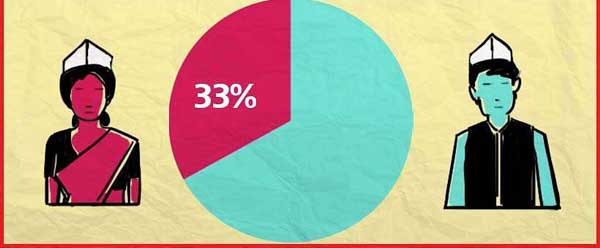

The bill promises 33 percent reservation for women in the Lok Sabha. The bill also proposes that one-third of the seats from the reserved seats will be fixed for Scheduled Castes and Scheduled Tribes. The reserved seats will be allotted by rotation to different constituencies in the Lok Sabha. Besides, the reservation will cease to exist after 15 years of commencement of the law.
Those who believe in the passage of the bill rely completely on the numbers. Out of a total of 543 MPs in the current Lok Sabha, only 62 are women. Essentially, that means one in every 10 parliamentarians is a woman, which is a skewed proportion considering that 49 percent of the Indian electorate consists of women.
Those who are against the passage of the bill argue that reserving a constituency for a woman would translate to a loss of opportunity for the men who could have been better or more qualified candidates. This could also result in disregarding the choice of the voter.




